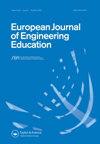让学生参与工程课程设计:一种基于建设性一致性和多标准决策的组合方法
IF 2.8
Q2 EDUCATION & EDUCATIONAL RESEARCH
引用次数: 0
摘要
让学生积极地塑造他们的学习是至关重要的。各种各样的学生参与模式,如基于设计的研究、参与式设计和共同创造,都强调了学生在塑造教育活动中的日益重要的作用。让学生参与课程设计,就像学生共同创造一样,可以增强能动性,改善学生体验,并促进成果。考虑到这一点,我们提出了一种将多标准决策与建设性一致性理论相结合的系统方法,让学生作为共同创造者参与课程设计。这种方法旨在让学生参与课程设计过程,共同创造预期的学习成果,这可以被视为开发共同创建课程的主要参与阶段。通过让学生参与进来,我们的方法旨在深入了解他们的需求,优先考虑他们的意见,并在整个课程设计过程中指导制定适当的课程规格。将该方法应用于一门新的多学科工程课程,并根据相应的步骤总结了结果。学生的反馈表明,这种方法对他们的学习动机、对课程目标的参与、与教师的合作以及预期学习成果的总体实现产生了积极的影响。本研究的意义在于对高等教育的贡献,提供了一个更完整和系统的方法来支持教育者和学习者在学术课程设计中的共同创造。本文章由计算机程序翻译,如有差异,请以英文原文为准。
Involving students in engineering course design: a combined approach based on constructive alignment and multi-criteria decision-making
Empowering students to actively shape their learning is essential. Various student involvement models, such as design-based research, participatory design, and co-creation, emphasise students’ growing role in shaping educational activities. Engaging students in course design, as seen in student co-creation, can enhance agency, improve the student experience, and boost outcomes. Considering this, we propose a systematic approach combining multi-criteria decision-making with constructive alignment theory to involve students as co-creators in course design. This approach aims to engage students in the course design process and co-create intended learning outcomes, which can be regarded as the primary participatory phase in developing a co-created course. By involving students, our approach aims to gain insight into their needs, prioritise their views, and guide the formulation of appropriate course specifications throughout the course design process. The approach is applied to a new multi-disciplinary engineering course, and the results are summarised following its corresponding steps. Students’ feedback indicates that the approach positively influenced their motivation, engagement with course objectives, collaboration with teachers, and overall achievement of intended learning outcomes. This study’s significance lies in its contribution to higher education, offering a more integrated and systematic approach to support co-creation between educators and learners in academic course design.
求助全文
通过发布文献求助,成功后即可免费获取论文全文。
去求助
来源期刊

European Journal of Engineering Education
EDUCATION & EDUCATIONAL RESEARCH-
CiteScore
7.30
自引率
13.00%
发文量
64
期刊介绍:
European Journal of Engineering Education is published six times a year in print and electronic editions and provides an essential forum for dialogue between researchers and specialists in the field of engineering education, at European and worldwide levels. European Journal of Engineering Education is the Official Journal of SEFI, the Socièté Européenne pour la Formation des Ingénieurs (the European Society for Engineering Education). SEFI is a non-governmental organization whose aims are to develop information about engineering education, to improve communication and exchange between professors, researchers and students and to promote cooperation between the various institutions concerned with engineering education.
 求助内容:
求助内容: 应助结果提醒方式:
应助结果提醒方式:


